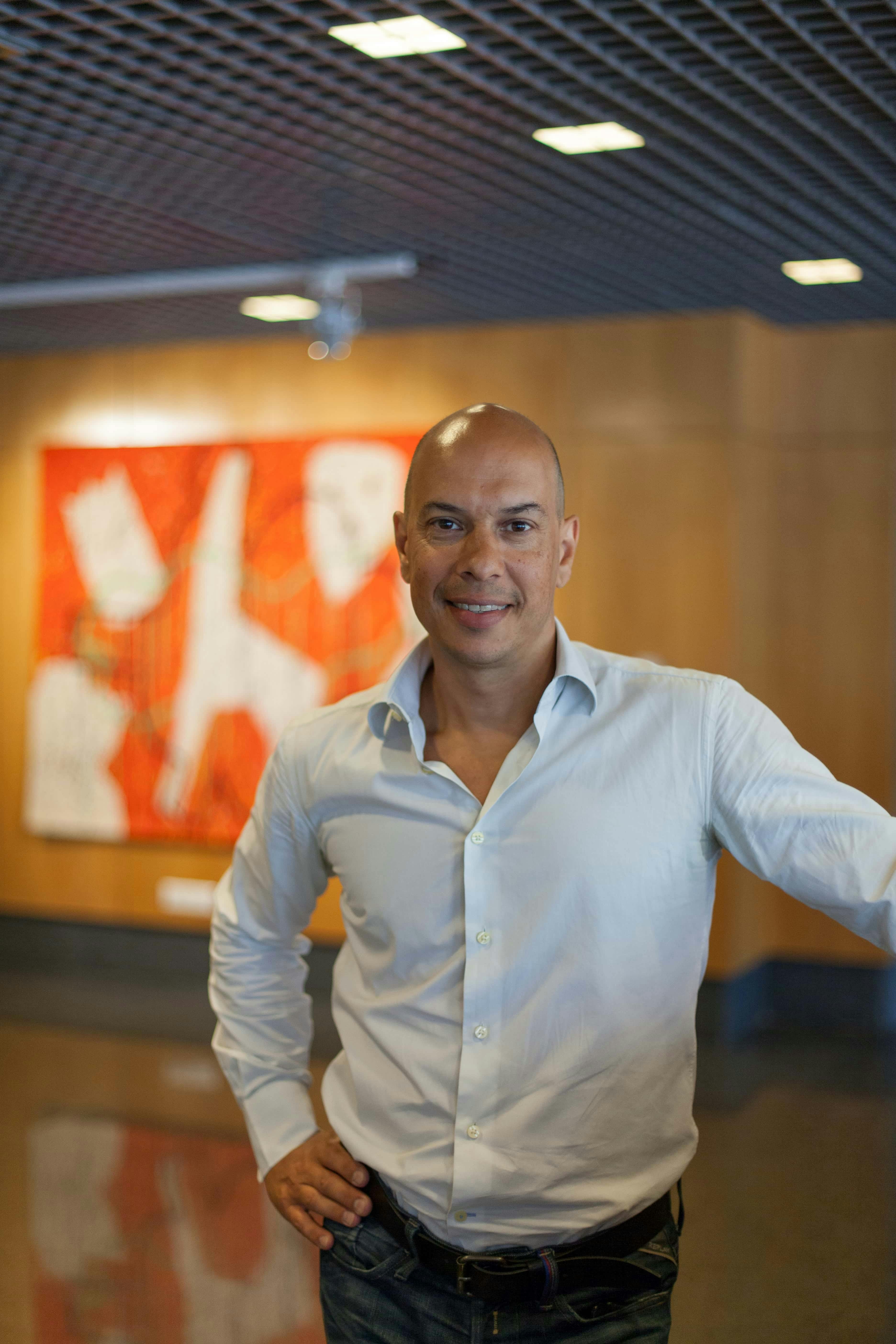How a government initiative in Lisbon is fostering entrepreneurship
n recent years, Lisbon has taken its place on the global stage as one of the best places to be an entrepreneur. But after a period of economic instability and dealing with the effects of the eurozone financial crisis, how did this come to be? We take a look at the role of an initiative launched a few years ago by the Lisbon City Council.

Photo: Unsplash/Fulvio Ambrosanio
In 2011, the mayor of Lisbon at the time, António Costa, who’s now the prime minister of Portugal, created the country’s first directorate-general (DG). The DG in Lisbon’s City Council is a government administration branch that focuses on building the Portuguese capital’s economy and encouraging investment, innovation and entrepreneurship.
Set up as an ambitious strategy aimed to position Lisbon as a tech hub and one of the most innovative and creative cities in Europe, the DG has a staff of about 70 people spread across various programs and projects and a budget of about €500,000 per year.
Paulo Soeiro de Carvalho, the general director for economy and innovation, has played a major role in building up Lisbon’s DG. In 2015, the city was praised as an “Atlantic business hub and gateway to the Americas, Africa and the EU” when it won the European Entrepreneurial Region of the Year award.
Paulo told Startup Guide it’s essential that Lisbon competes in the international landscape since the city has the necessary tools at its disposal to do so. “We are in a strong geographic, geopolitical position, we are a university city, and we have a lot of creative people, spaces and entrepreneurial skills,” he says.
Meanwhile, Reuters reported in October that Europe’s largest tech event, Web Summit, will stay in Lisbon for another ten years. After hosting its first Web Summit in 2016, the Portuguese capital is gearing up for its third edition in November this year. The conference is forecasted to bring in 30,000 more participants compared to 2017.
Read also: The essentials to launching a company in Lisbon

Paulo Soeiro de Carvalho. Photo: Startup Guide
Speed of setting up a business and foreign investment
One of the reasons why the startup ecosystem is doing so well in Lisbon is because of initiatives like Empresa na hora. Under this scheme, companies can register for free and be set up in less than 45 minutes with little capital needed. There are also various government agencies that offer free support with just the click of a button.
Services such as Iniciativa Lisboa provide small companies with the support they need to take their first steps into business, while Invest Lisboa (and on a national level, Startup Portugal) can equip larger companies with information from fiscal and labour incentives to available office spaces.
We are not innocents. We are pulling some strings to make Lisbon a dynamic place for new businesses.
But while the city seeks to mobilize its own resources and retain its local talent, Lisbon’s DG recognizes the importance of attracting foreign investment, which accounts for 30 percent of Lisbon’s total investment.
The Portuguese government has created a venture capital fund worth $200 million aimed at boosting foreign investment in startups, according to a Forbes report earlier this year. Meanwhile the city’s appealing tax incentives have contributed to the economy’s fastest rate of expansion since 2000, a Financial Times report found in February.
Lisbon’s startups moreover raised $160 million in capital in 2016, which is testament to the energy and dynamism of the city DG’s ambitious strategy. In June that same year, the government created a national network of startups and tech hubs in Lisbon via the StartUP Voucher initiative, which offers over 400 entrepreneurs a fellowship that lasts one year so that they can pursue their ventures.

Photo: Unsplash/Diego García
Incubators and accelerators
Lisbon has cultivated a friendly and dynamic ecosystem that is based upon an incubator network of over a dozen sites where early-stage companies can work and learn.
Set up in 2012, Startup Lisboa was the first and most prominent incubator to be created with the help of the new government initiative, along with bank Montepio and IAPMEI (Portuguese Agency for Competitiveness and Innovation), to support companies in their first years of activity.
The non-profit association describe themselves as “facilitators” committed to initiating access to the right mentors, investors and potential customers for businesses. Startup Lisboa also provides office space and a strong community environment based on the exchange of knowledge and expertise.
In the years since it was founded, Startup Lisboa has been involved with more than 65 business mentors and 50 partnerships, as well as helped to create 190 startup companies and 550 new jobs, according to a report from the European Commission.
Explore the ecosystem and talk with the right people because some of the decisions you will take about locating (or relocating) in Lisbon will revolve around finding the best kind of space, mentorship and services.
In terms of accelerators, Lisbon Challenge is one which claims to be “built for people” by preparing entrepreneurs to launch their businesses through the implementation of innovation methodologies, a mentorship program and funding.
Among the startups in Lisbon that have benefitted from this program are EatTasty, a home-cooked food delivery service, and CoolFarm, a smart indoor farming system company. EatTasty was able to launch its idea after winning $75,000 in investment at the 2016 Lisbon Challenge. Both of these startups are featured in our Startup Guide Lisbon book.
The city also promotes and supports a number of accelerator programs such as Smart Open Lisboa (SOL), a “Startup implementation program” that encourages companies to create products and services with open data.
Further incubators under Lisbon’s entrepreneurial network include Labs Lisboa, Tec Labs and Inovisa and accelerators such as BGI and EIT InnoEnergy, according to Silicon Republic.
Networking and collaborating
While sourcing the right initiatives to help a startup grow is integral in the early stages, Lisbon’s DG recognizes that the longevity of a business can often depend upon its ability to build a network of partnerships and alliances.
Paulo says that when finding people to connect with, it’s important to leave no stone unturned: “Explore the ecosystem and talk with the right people because some of the decisions you will take about locating (or relocating) in Lisbon will revolve around finding the best kind of space, mentorship and services.”
Part of the strategy of Lisbon’s DG is to help startups benefit from the expertise of the larger corporate sphere. When the DG was put in place, it established that it would run meet-ups a few times a year where startups could meet face-to-face with big companies and investors. “This kind of access can be invaluable for an early-stage company,” he says.
Moreover, Lisbon’s city council is seeking to draw international and business links to Portugal’s capital through collaboration with universities. “The publicly-supported accelerator Building Global Innovators – based at the Higher Institute of Business and Labour Sciences at the Lisbon University Institute (ISCTE -IUL), is just one example of a scheme helping bring academic research into corporate life,” Paulo says.
Additionally, there are entrepreneurial workshops, such as the Young Creators program, that are designed for those between 16 and 25 with the aim of cultivating and retaining young talent. Lisbon’s brightest minds can tap into a network of other aspiring entrepreneurs and have specialized assistance from a number of experienced mentors.
Looking ahead
Lisbon’s municipal council has also turned its attention to fostering a dynamic and technologically competitive digital economy, and has identified the creation of an ‘open-up city database’ as one of the city’s future vehicles for growth.
An example of an initiative using open data effectively is Lisboa Horizontal, which won the Big Smart Cities award in 2015 for developing an application to help citizens navigate their way around the city’s bike paths. The app also provides information on tourist and cultural attractions, public spaces and events to give its users a holistic view of Lisbon’s main attractions.
Through hackathons and public workshops, the DG furthermore encourages its citizens to participate in the development of new digital solutions.
Making use of disused buildings is yet another way in which Lisbon has been driving innovation. Currently, a number of disused spaces distributed among 20 buildings are under the process of transformation to house national and international entities in widespread industries.
Beato Creative Hub, for instance, which is located in a former army factory complex and is the future home of our new Startup Guide store in Lisbon, is being built with the intent of becoming one of the leading entrepreneurship centers in Europe.
With all of the above in mind, when asked why companies should come to Lisbon, Paolo said that it simply comes down to the enthusiasm with which the city tries to further the multitude of projects that they have in the pipeline.
“We are not innocents,” he adds. “We are pulling some strings to make Lisbon a dynamic place for new businesses.”
Main photo: Unsplash/Vita Marija
*This article was originally published on October 22nd, 2018 and updated on December 1st, 2018.

